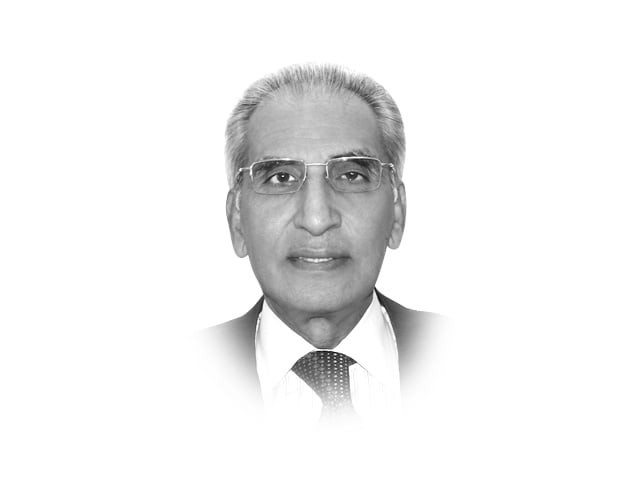Clinton in Islamabad
Clinton’s visit may not have removed the mutual doubts, misgivings, but it lessened tensions.

Clinton in Islamabad
Given the refrain of the past months, her visit was preceded by fears that this would be a ‘make or break’ trip. This perception was reinforced when influential figures such as Bruce Riedel, who enjoys President Obama’s confidence, recently advocated a policy of ‘containment’ against Pakistan, claiming that the two countries were now moving inexorably towards mutual hostility, a recommendation that was not only frightening but self-defeating as well.
Admittedly, Pakistan has made serious mistakes, some of which shocked the Americans. While we were angry, and rightly so, viewing the US raid on Abbottabad as a serious breach of our sovereignty, Osama’s presence in that city was the tipping point — an unpardonable sin in the American view that left bilateral trust in tatters.
Accompanied by the heavy guns of the military and intelligence services, Secretary Clinton tried to set the tone of her visit here, while still in Kabul, warning that she intended to “send a clear, unequivocal message to Pakistan; they can either be helping or hindering, but we are not going to stop our efforts”. Her remarks in Islamabad were however more nuanced, mixing admonitions with understanding for Islamabad’s efforts and sacrifices.
Reiterating the “urgency and importance” of Pakistan recognising that the Haqqani network needed to be “squeezed” and the terrorist safe havens eliminated, not in years but in “days and week”, she stressed that Pakistan’s denials did not carry much weight. She added that the US knew “for a fact” that elements within the Pakistan military were helping the militants, and that “there are sanctuaries in Pakistan which are the sites of the planning and operationalising of attacks” on US and Afghan troops. Without batting an eyelid, she confirmed that US officials had met with Haqqani’s representatives and that too, with the ISI’s help, which called into question the morality of questioning Pakistan’s own contacts with this group.
The irony of insisting that the US would continue to pursue both fighting and talking with the Taliban and that it was for Pakistan to make the Taliban either agree to the reconciliation process or be made militarily irrelevant, appeared lost on her and her associates. Pakistan has been pointing out that the Taliban have little incentive to ‘talk’ as long as the US intends to ‘swat them to the negotiating table’ — a policy that has been repeatedly discredited in Afghanistan and elsewhere.
Clinton’s visit may not have removed all the mutual doubts and misgivings, but it has lessened the tension and may even have reduced the intensity of mistrust. While both countries will have to learn to ensure better civil-military coordination in their own capitals, they will also have to eliminate public rhetoric and respect each others concerns if another round of recriminations is to be prevented. Pakistan will have to be far more forceful in confronting the militants and committed to eliminating the safe havens, while the US too has to show genuine understanding of Pakistan’s concerns. Recent developments such as the India-Afghanistan strategic agreement, the extension of the drone attacks to new areas of North Waziristan and the deployment of US forces in the greater Khost area have enhanced Islamabad’s concerns, while smacking of callousness on the part of the US. News of US desire for a permanent military presence in Afghanistan beyond 2014 also raises strategic concerns in Pakistan and other countries of the region, including Iran and China. How do you achieve a regional consensus on Afghan neutrality if you want to make that country a jumping-off point for US penetration into the neighbourhood?
Published in The Express Tribune, October 26th, 2011.
















COMMENTS
Comments are moderated and generally will be posted if they are on-topic and not abusive.
For more information, please see our Comments FAQ